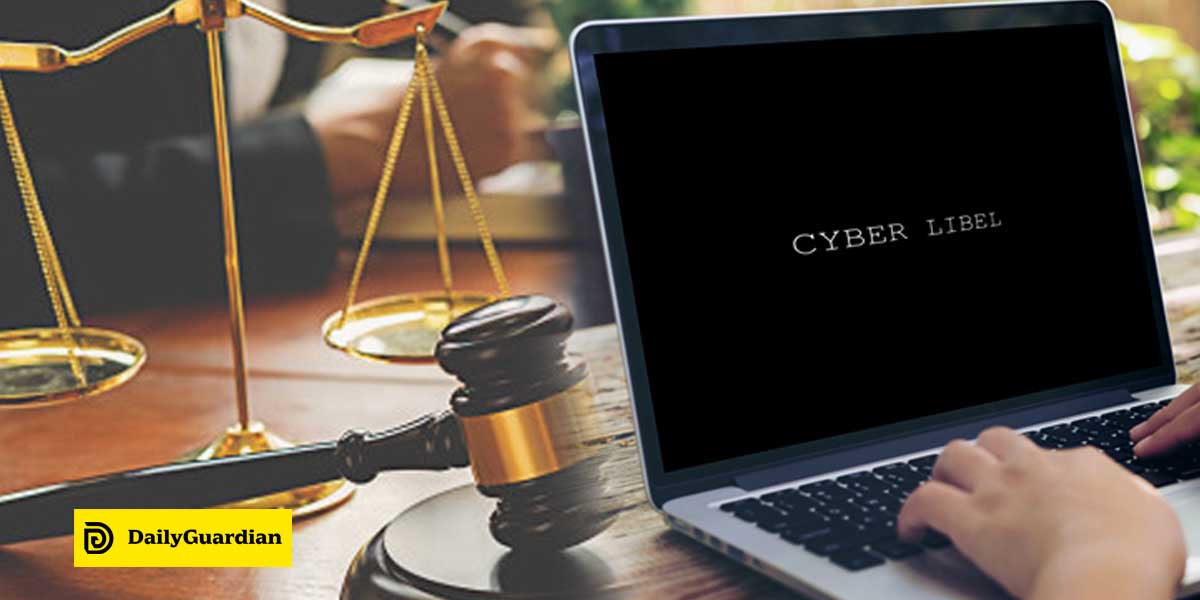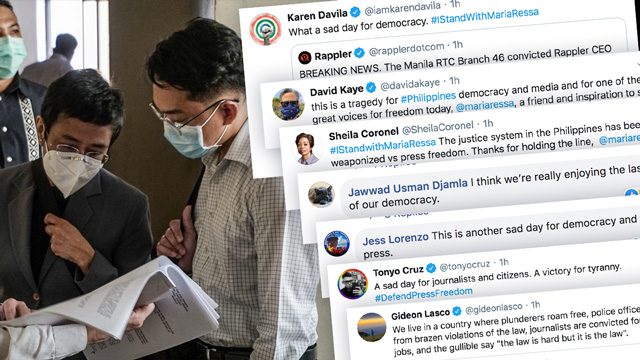To file a cyber libel case in the Philippines, consult with an attorney, gather evidence, and submit a complaint to the prosecutor’s office.

Preparing Necessary Documents
When filing a cyber libel case in the Philippines, preparing the essential documents is a critical step. These documents not only establish the basis for your complaint but also provide the necessary evidence to substantiate your claims.
Identification of the Parties Involved
It’s vital to clearly identify every party involved in the case:
- Complainant: This refers to you or the individual/entity filing the cyber libel case. Ensure to have:
- Full legal name
- Address
- Contact details (phone number, email)
- Relationship with the accused (if any)
- Defendant: This is the individual/entity being accused of committing cyber libel. You will need:
- Their full legal name (or pseudonym if used online)
- Address (if known)
- Any online aliases, usernames, or other identifying information
- Witnesses: If there are any witnesses to the libelous act or those who can testify to its impact, list their:
- Names
- Addresses
- Relationship to the case
Collection and Preservation of Digital Evidence
Collecting digital evidence can make or break your case. It’s crucial to gather and safeguard this evidence appropriately:
- Screenshots: Take clear screenshots of the libelous content. Ensure the date, time, and URL are visible.
- Back-up: Save copies of the libelous content in multiple locations—like cloud storage, USB drives, and external hard drives.
- Metadata: Tools or professionals can assist in extracting this.
- Witness Accounts: If others witnessed the libelous content online, ask them to also take screenshots and provide written accounts of what they saw.
Written Statements and Testimonies
These provide first-hand accounts of the libel and its effects:
- Personal Statement: Draft a detailed account of the libelous act, how you came across it, and its impact on you both personally and professionally.
- Witness Testimonies: Obtain written statements from anyone who witnessed the libel or its effects on you. They should detail what they saw and the date and time of observation.
- Expert Testimonies: In some cases, you may need an expert, like a digital forensic analyst, to provide a testimony about the evidence or the nature of the libel.
Steps to File a Cyber Libel Case
Below are the detailed steps and procedures:
Initiating a Complaint with Law Enforcement
When you believe you’ve been a victim of cyber libel, the first step is to approach the appropriate law enforcement agency:
- Lodge a Complaint: Head to the nearest police station or, ideally, a unit that specializes in cybercrime. Brief them about the incident, providing as much detail as possible.
- Present Evidence: Offer all the documents you’ve prepared—screenshots, metadata, and written statements—to bolster your complaint.
- Record Statement: Provide an oral statement detailing the incident.
- Seek Advice: Talk to the officers about the potential next steps and any immediate measures you should take, especially if there are concerns about ongoing harassment or threats.
Formal Submission to the Prosecutor’s Office
- Drafting the Complaint: With the help of a lawyer, draft a formal complaint detailing the cyber libel incident. This should include all evidence and a clear narrative of events.
- Submission: Submit the complaint, along with all the supporting documents, to the local prosecutor’s office.
- Preliminary Investigation: The prosecutor will conduct a preliminary investigation, which might include summoning the accused and witnesses. You’ll need to participate actively, providing clarifications as needed.
Role of the Department of Justice in Cyber Libel Cases
- Review of Evidence: The DOJ reviews all evidence presented to ensure they meet the necessary legal standards for a court case.
- Issuance of Resolution: After reviewing the case, the DOJ will issue a resolution. This can be a recommendation to file the case in court or to dismiss it if the evidence is insufficient.
- Protection of Complainants: The DOJ can provide protection to victims, especially in high-profile cases or if there’s a significant threat to the complainant’s safety.
- Oversight: The DOJ ensures that all cyber libel cases are conducted fairly and that all parties receive due process.

Legal Procedures and Processes
Navigating the legal landscape of cyber libel in the Philippines involves a structured series of procedures and processes designed to uphold justice. Understanding these steps is crucial to ensure a fair and timely resolution of your complaint.
Preliminary Investigations and Hearings
Before a case goes to trial, preliminary steps are taken to validate the authenticity and weight of the complaint:
- Submission of Affidavits: Both the complainant and the accused are expected to submit their respective affidavits. These sworn statements detail each party’s account of the situation.
- Evidence Presentation: All evidence collected, including digital records, testimonies, and expert analyses, are presented for examination.
- Prosecutor’s Decision: Based on the presented evidence and affidavits, the prosecutor decides whether the case has merit.
Filing with the Court
Once the preliminary investigation is concluded and the case is deemed to have merit, the next step is to officially file it in court:
- Drafting of Information: The prosecutor drafts the “Information” – a formal document outlining the charges against the accused.
- Case Raffling: After the Information is filed, the case is raffled to determine which branch of the court will handle it.
- Issuance of Warrant: Based on the Information, a judge may issue a warrant of arrest against the accused, unless bail is applicable and posted.
Court Hearings and Trials
The trial phase is where both parties present their complete arguments, and the court arrives at a decision:
- Arraignment: The accused is made aware of the charges and is asked to enter a plea – either “guilty” or “not guilty.”
- Presentation of Evidence: Both parties, under their respective legal counsels, present their evidence. This includes showing digital proofs, calling witnesses to the stand, and cross-examinations.
- Deliberation: This might take multiple sessions, depending on the complexity of the case.
- Judgment: The judge, after thorough deliberation, delivers the verdict.
Roles of Legal Professionals
In the complex world of cyber libel litigation, legal professionals play pivotal roles, ensuring that the complainant’s rights are protected and the process runs smoothly. Their expertise is essential in navigating the legal maze and achieving a favorable outcome.
Importance of Hiring a Knowledgeable Attorney
An attorney well-versed in cyber libel cases is indispensable:
- Understanding of Cyber Libel Laws: A specialized attorney has an in-depth understanding of the intricacies of cybercrime laws, ensuring that your case is built on a solid foundation.
- Strategy Formulation: Every case is unique. A skilled attorney can craft a strategy tailored to the specifics of your complaint, maximizing your chances of a favorable verdict.
- Representation in Court: From presenting evidence to cross-examining witnesses, your attorney speaks on your behalf, ensuring your side of the story is convincingly told.
- Legal Advice: An experienced lawyer can provide insights into potential outcomes and guide you on the best course of action throughout the case.
Consulting with a Digital Forensics Expert
As cyber libel cases revolve around digital evidence, the expertise of a digital forensics professional is often crucial:
- Evidence Extraction: Digital forensics experts can retrieve data from various digital sources, ensuring that no stone is left unturned in collecting evidence.
- Data Analysis: Beyond collection, these experts can analyze data, extracting patterns and insights that can bolster your case.
- Authenticity Verification: It’s essential to prove that digital evidence hasn’t been tampered with. Forensics professionals use specialized tools to verify the authenticity of data.
- Testimony in Court: A digital forensics expert can be called upon to testify, explaining the technical aspects of the evidence to the court, making it understandable and credible.
Potential Defenses and Counter-arguments
In cyber libel cases, defenses and counter-arguments are essential tools for the accused. Understanding these defenses can be crucial, whether you’re the complainant or the defendant, as they shape the trajectory of the litigation.
The Truth as a Defense
One of the most straightforward and robust defenses against a libel accusation is proving the veracity of the statement:
- Evidentiary Support: Present evidence that backs the claim made in the alleged libelous statement. If the statement is demonstrably true, it can’t be libelous.
- Witness Testimony: Witnesses can be called upon to corroborate the truth of the statement in question.
- Public Records: If the statement is based on public records or documented events, these can be used to establish its truth.
Reposting and Sharing: Who is Liable?
With the proliferation of social media, sharing and reposting content has become commonplace. But who bears the responsibility in such cases?
- Original Poster Liability: The individual who first published the potentially libelous content is typically the primary target of a libel suit. However, this doesn’t exonerate sharers completely.
- Intentional Amplification: If someone shares or reposts content with a clear intent to harm or with knowledge of its falsehood, they might also be held liable.
- Ignorance Plea: A defendant might argue they weren’t aware of the libelous nature of the content when they shared it. This defense’s strength depends on the specific circumstances and jurisdiction.
Public Figure Considerations
Public figures, due to their status in society, face unique considerations in libel cases:
- Higher Threshold for Malice: Public figures often have to prove that the defendant acted with “actual malice” – knowing the statement was false or showing reckless disregard for the truth.
- Newsworthiness: Statements about public figures that relate to their public roles or actions might be defended as being newsworthy or of public concern.
- Consent or Invited Defamation: If a public figure has voluntarily entered a public debate or controversy, they might face a higher burden in proving they were unjustly defamed.

Penalties and Sanctions
Cyber libel convictions can lead to severe penalties, designed to deter such offenses and provide justice to the aggrieved party. These punishments range from monetary fines to imprisonment. Additionally, there are other consequences that individuals might face beyond the immediate legal sanctions.
Potential Fines and Imprisonment
The punitive actions taken against a defendant in a cyber libel case can be quite stringent:
- Monetary Fines: These fines aim to deter individuals from committing or repeating such offenses.
- Jail Time: Imprisonment is another potential outcome. The duration of the prison sentence can vary widely, depending on factors like the defendant’s intent, the harm caused, and whether it’s a repeat offense. Some jurisdictions might impose longer sentences for cyber libel compared to traditional libel due to the vast reach and permanence of online content.
Other Consequences of a Cyber Libel Conviction
- Reputation Damage: A conviction can severely tarnish one’s personal and professional reputation. The stigma of a cyber libel conviction can be long-lasting, affecting both social and professional relationships.
- Employment Challenges: Many employers conduct background checks. A criminal record with a cyber libel conviction can make job hunting significantly more challenging, as potential employers might view the individual as a liability.
- Loss of Trust: Trust, once broken, is hard to rebuild. Individuals found guilty might find their credibility questioned in future interactions, both online and offline.
- Restrictions on Online Activities: In some cases, convicted individuals might face restrictions on their future online activities as part of their sentence or probation terms.
- Civil Lawsuits: Apart from criminal charges, the aggrieved party might also pursue civil litigation seeking damages for harm caused, leading to additional financial burdens for the convicted individual.